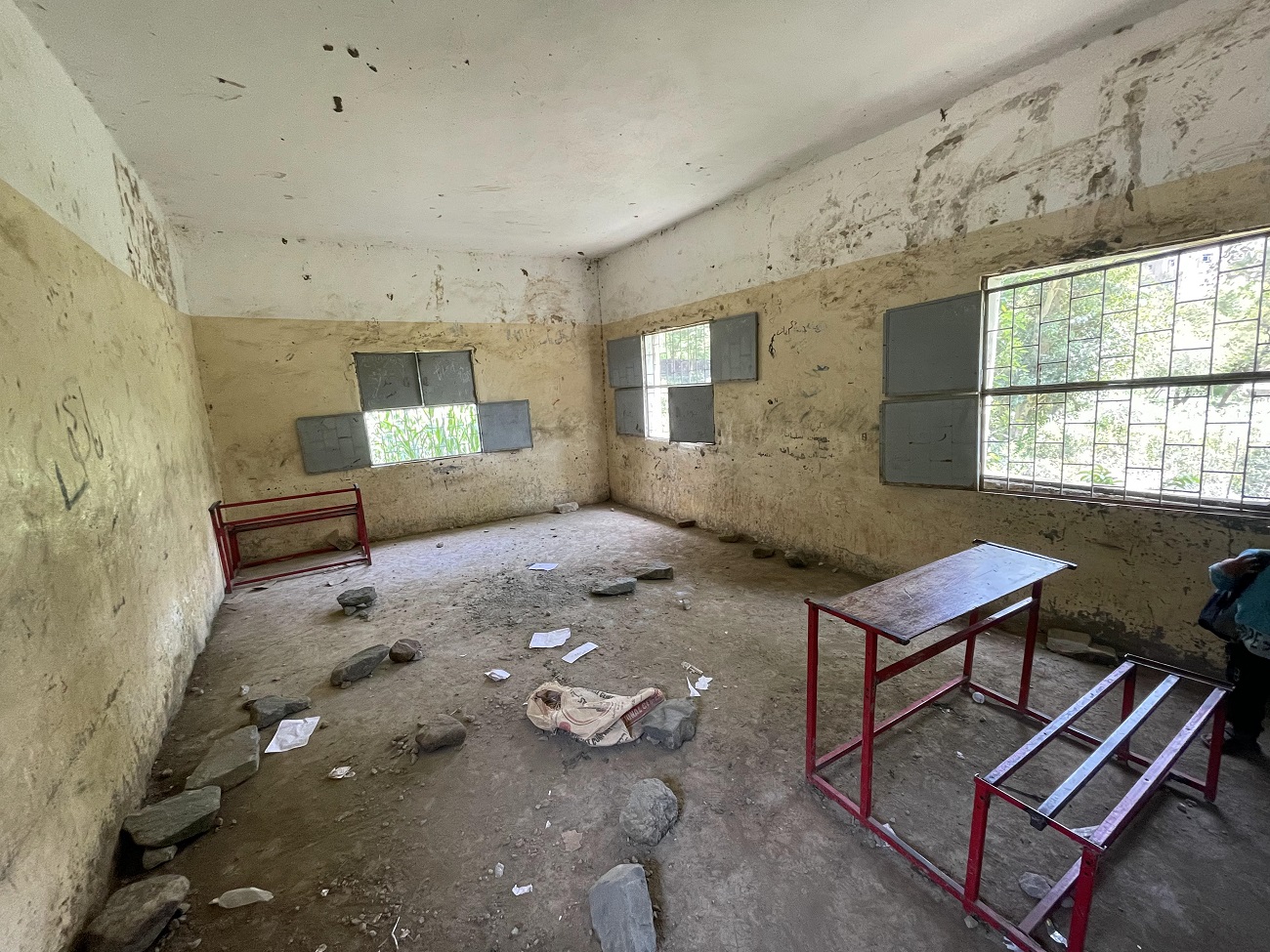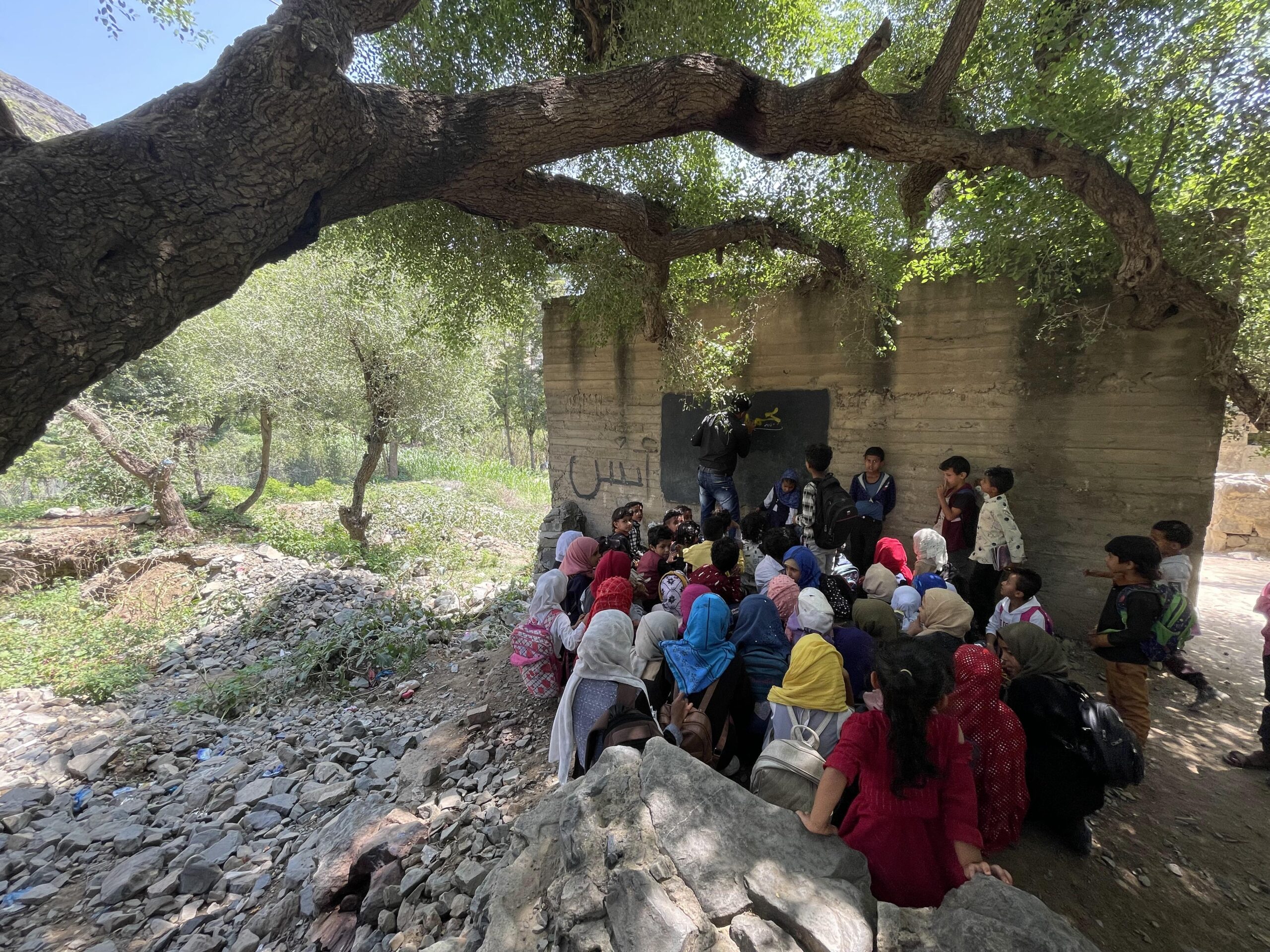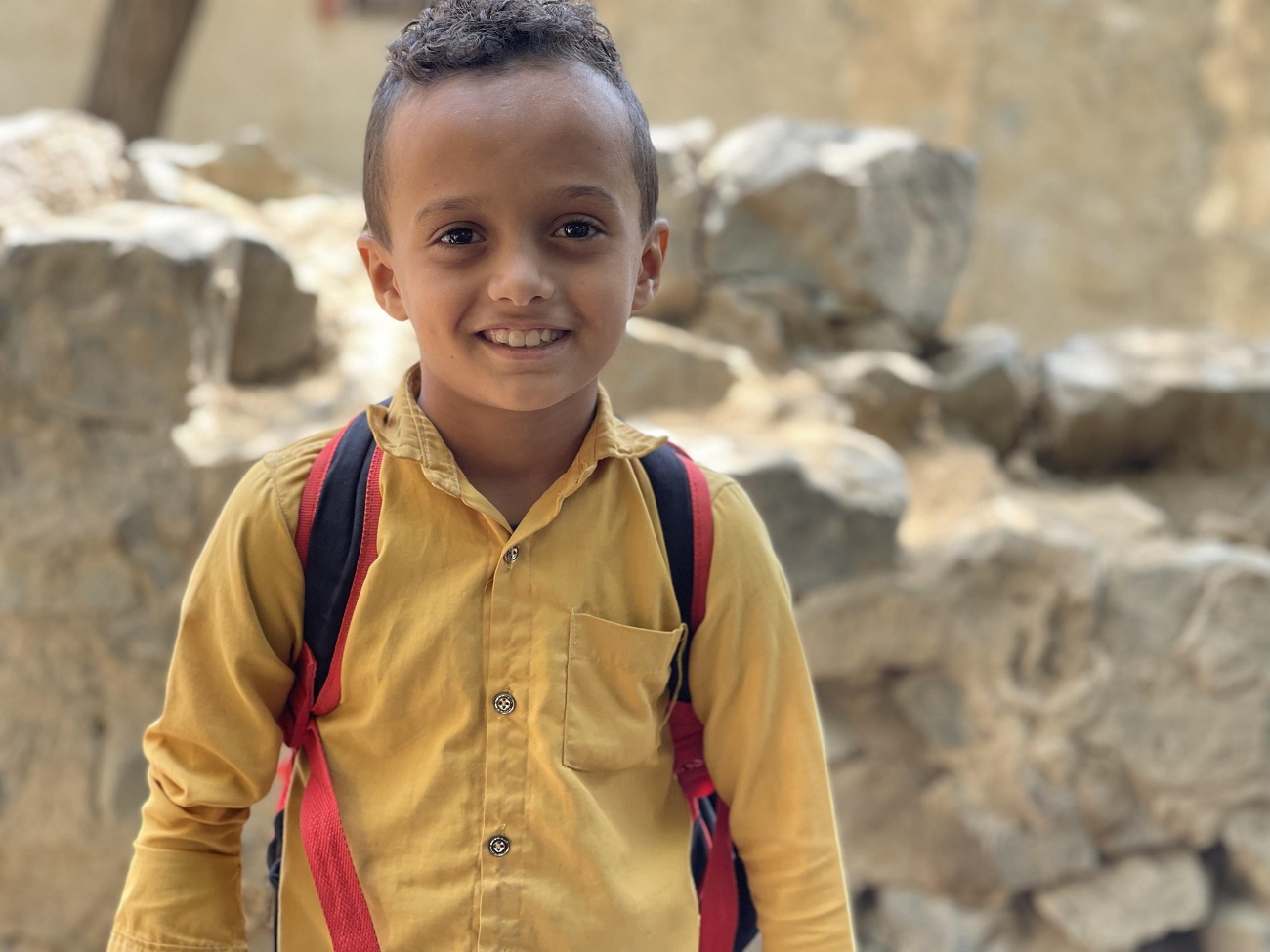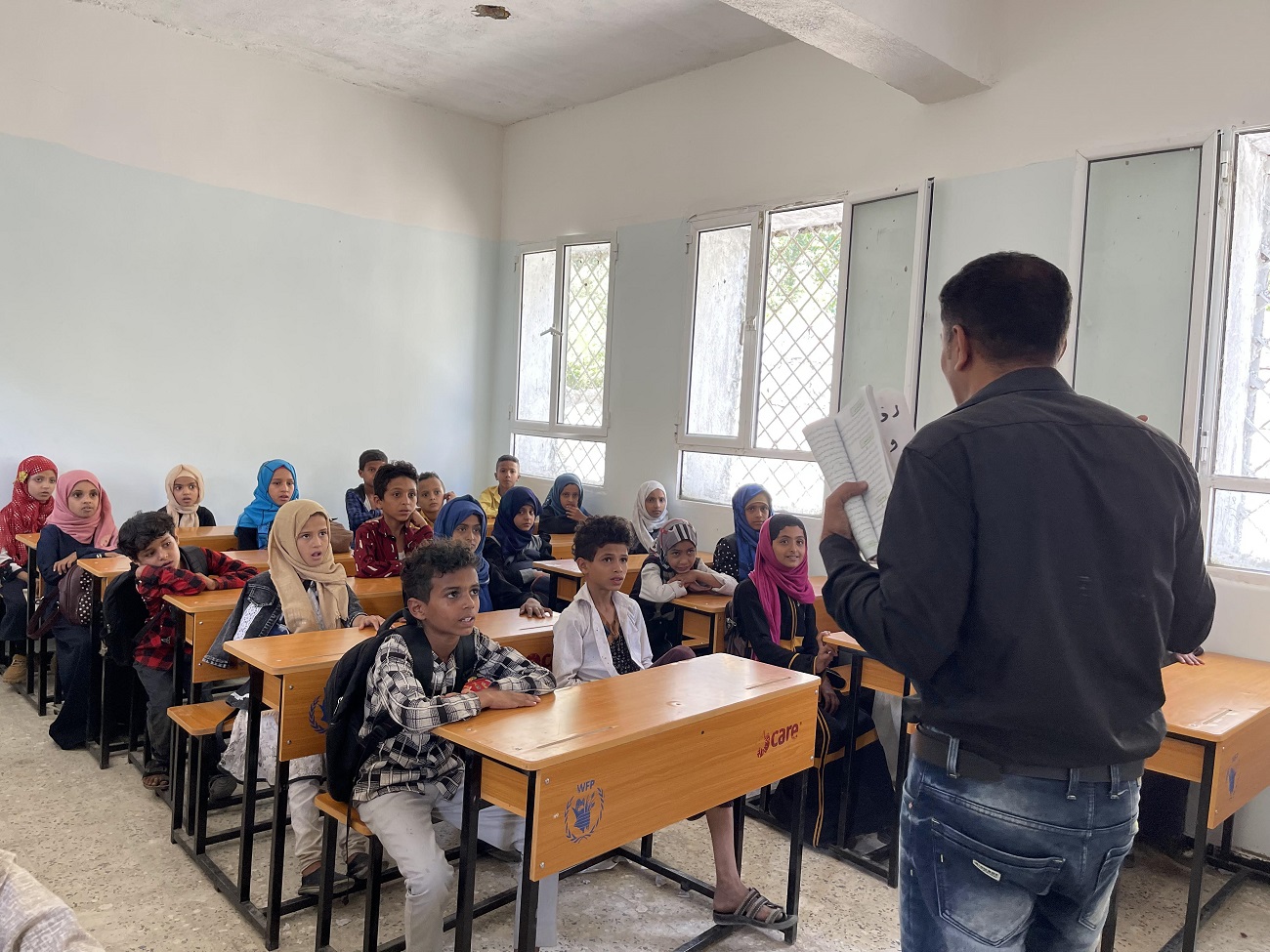Conflict in Yemen has brought about continued disruption of schooling across the country and the fragmentation of the nearly collapsing education system. This has had a profound impact on the learning and overall cognitive and emotional development of all the 10.64 million school-age boys and girls, as well as their mental health.
Al-Iman School is the only school in Bani Molik Village in Taiz Governorate’s Jabal Habashy District. Situated in southwestern Yemen, the primary school which catered up to sixth grade, was built in the 80s by benefactors and consisted of just two old classrooms without walls. “There weren’t enough classrooms, so students were studying under the tree. It gets cold here and so students and teachers would suffer. Two of my sons study here. They used to make excuses to not to go to school, either because of the weather or feeling sick,” Ahmed, a teacher at the school explains.
Over the duration of seven years of conflict, 2,916 schools have been destroyed, partially damaged, or utilized for non-educational purposes – that constitutes at least one in four schools across the country. This has resulted in over two million school-age children being out of school. “Our school is without a fence and is located on the path of a torrent stream. When it rains, water enters the school and we cannot study and teaching stops for several days,” Ahmed says.
School attendance has also been impacted and made more challenging by many factors. These include but not limited to by families having to undergo displacement multiple times, the long distance to the nearest schools, exposure to explosive hazards which compromises safety and security, the lack of female teachers (where 80 per cent of teachers are male) and the lack of gender-sensitive and accessible WASH facilities. “Many parents prevent their children from going to school due to the risks that they face. Snakes are everywhere. My daughter had to drop out from the school because the school is not safe and too small, and the students were forced to study under the trees. Also, I don’t have enough money to buy school supplies for my kids,” says Ahmed.
“My mother used to yell at me every day because I would go home, and my clothes would be very dirty and dusty. We were sitting on the floor all day for classes which meant she had to buy a lot of washing soap to clean my clothes,” adds Munder*, a seven-year-old student at Al-Iman School.





